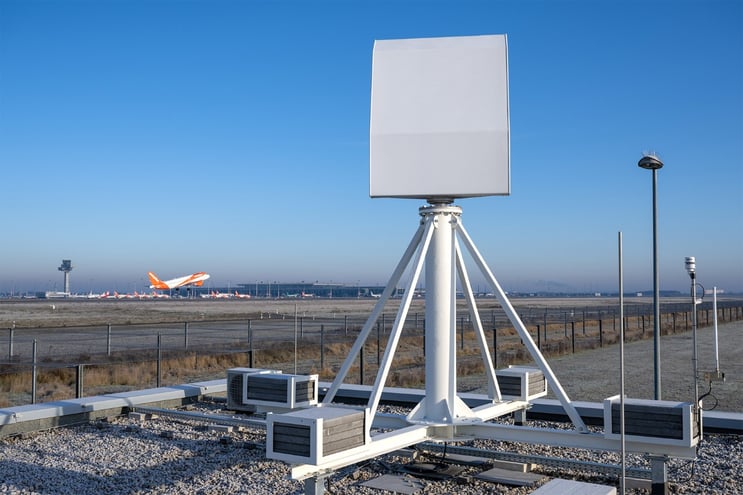Background
Flughafen Berlin Brandenburg (FBB) airport has used our 3D Flex system to protect its airspace from bird threats since 2016. But they recently decided to upgrade their solution by installing a MAX avian radar, alongside several bird deterrence systems from Purivox.
The new, integrated solution enables bird controllers to detect, track, and mitigate avian threats. Using the new radar system, the team can determine where high-risk bird activity occurs on the airfield and deploy relevant deterrence measures to remove the hazard (if required).
Safe and Effective Bird Deterrence
Purivox’s bird deterrence devices are radio-controlled gas cannons that use propane gas to create a loud bang that scares birds away from the surrounding area. FBB’s bird controllers operate the cannons manually, as automatic deployment is impossible and wouldn’t be suitable at an airport.
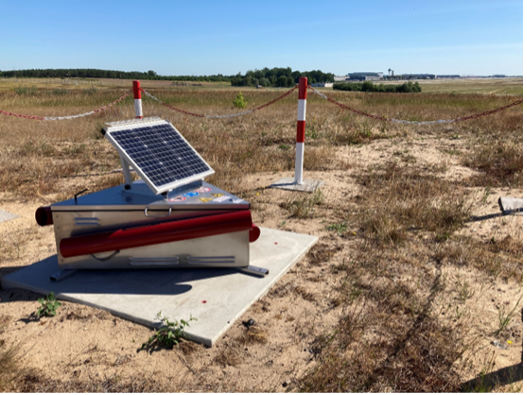
Figure 1. A Purivox deterrence device installed at FBB
Real-time Monitoring with MAX Bird Radar
FBB’s bird controllers can monitor bird activity in real-time using our purpose-built Mobile Viewer software.
The application consists of a real-time background map that visualises all bird activity in the area and updates every second to give controllers full situational awareness of their airspace. As well as monitoring bird activity, the application can also log observations and generate visual alerts when bird activity increases in certain predefined zones.
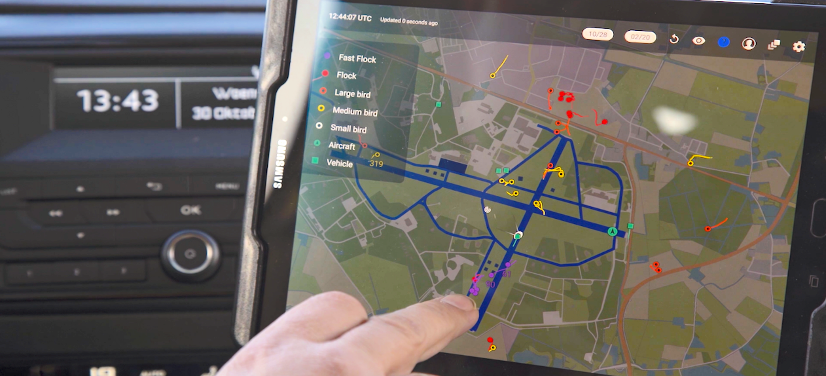
Figure 2. Bird controllers using the Mobile Viewer at FBB
Bird controllers can monitor activity from their vehicles using their tablets. When they spot a potential threat, they remotely activate one or more of the deterrence devices positioned across the airfield to scare away the threat. On certain occasions, the team was able to use the tablet to identify high-risk bird activity on the far side of the airport.
Solution
Traditionally, bird controllers would operate Purivox’s bird deterrence devices via a handheld radio controller. They would then enter incidents in the logbook manually. This wasn’t a very efficient or practical solution. So, the team asked if it would be possible to activate the deterrence devices directly from a tablet. They also wanted to be able to log each activation and monitor gas cylinder volume levels concurrently.
We worked closely with Purivox to develop an effective solution, tailored to FBB’s needs. This involved installing multiple deterrence devices across the airport, with each location mapped within the Robin Radar application. Bird controllers could then activate the selected devices and verify successful actions from anywhere on the airfield.
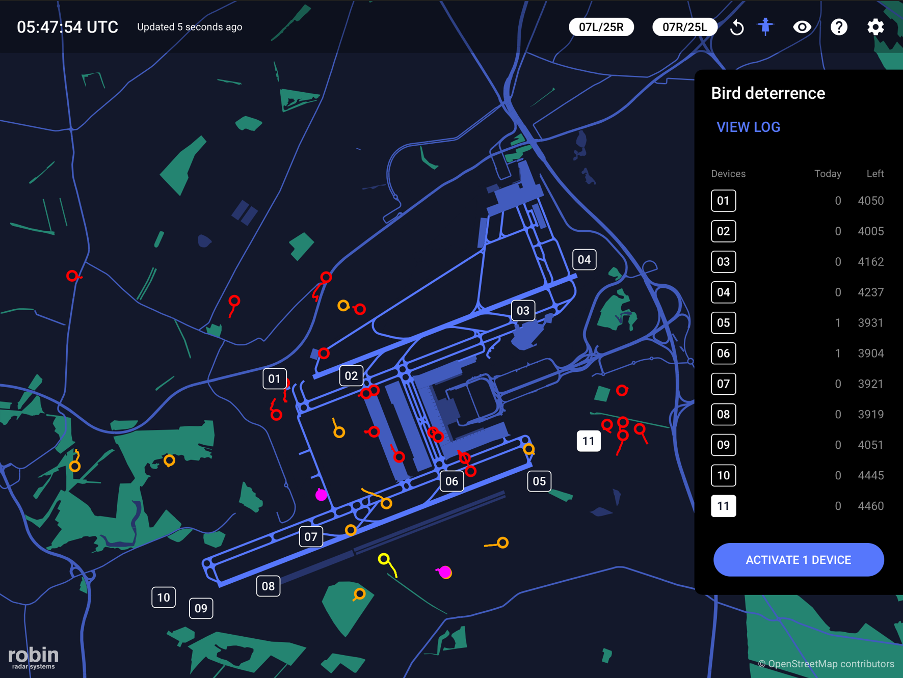
Figure 3. Current setup at FBB, showing bird tracks and deterrence devices
Our solution was to equip each cannon with an IoT device. The radar’s processing unit connects to the IoT network, enabling communication to and from the tablet and each deterrence device, for fast and easy deployment.
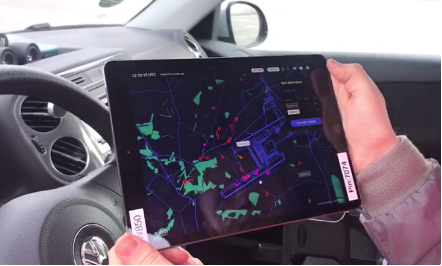
Figure 4. Controllers use a tablet to identify bird tracks and activate the gas cannons
Additional Technical Info
The IoT device attached to each cannon has a unique IP address for logging into the IoT network (over a secure VPN connection). Users can add the location, name, and IP address of each device to the bird radar’s configuration page for easy identification.
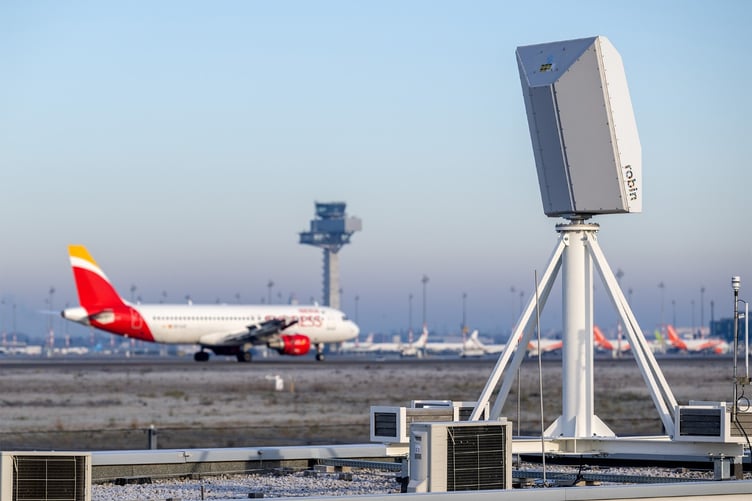
Benefits
Implementing our integrated solution provides several additional benefits for FBB:
-
The position of each deterrence device appears on the same map, alongside local bird activity and the location of the bird controller. This makes it is easier to evaluate the device's success in each location.
-
The devices provide feedback over the IoT connection, telling controllers if the activation was successful. As a result, it’s no longer necessary for bird controllers to be near a device to verify a successful activation. The devices also record successful activations in the data log, providing proof of active bird control in case of a bird strike.
-
Automatic activation logging makes it possible to analyse device usage (linked to bird activity). This verifies that the total number of activations each day is within prescribed limits (where noise abatement limitations apply).
-
Controllers only need to refill each device’s gas cylinder periodically: approximately once a year, or every 20,000 shots. A counter keeps track of how many shots have been fired since the last refill, indicating when a cylinder needs to be refilled. This removes the need for periodic checks.
Don’t Leave Your Business Vulnerable
Find out how our radars can make your operations safer with actionable data. Get in touch today.
